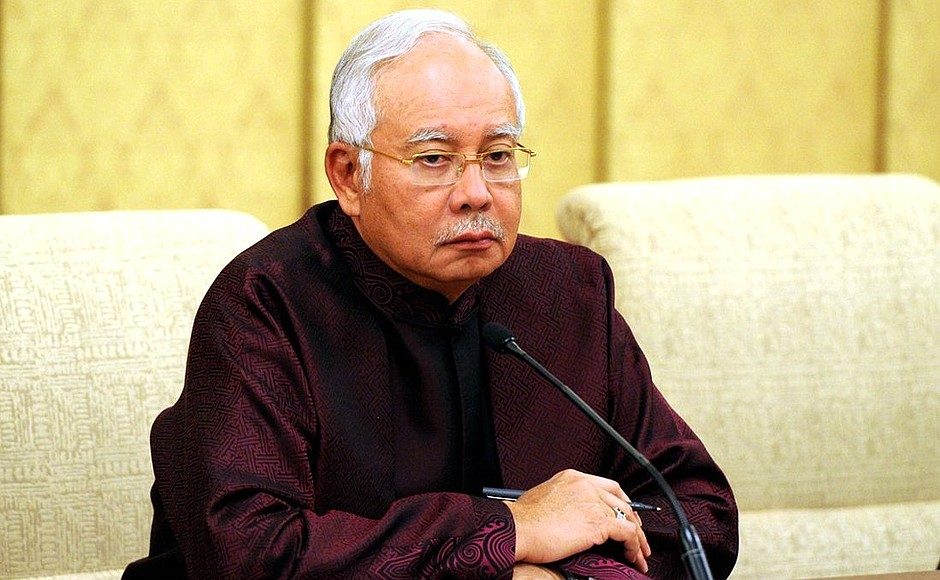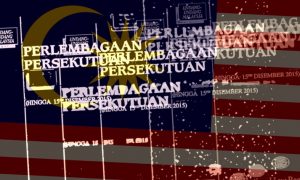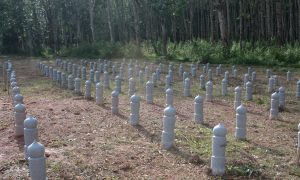Malaysia’s 14th general election (or GE14) looms large. Some pundits predict that the election will be held sometime between November 2017 and March 2018. This is supposedly the best window for Prime Minister Najib Razak to lead Barisan Nasional (BN) to another victory.
But calling for a general election amid allegations of an epic financial scandal involving the prime minister himself is not an easy task. The 1MDB scandal, the subject of investigations in six countries, has badly affected Najib’s popularity. What the Prime Minister badly needs is a real feel-good factor that will overcome all these misfortunes. But this will be hard to come by.
By now, Najib must have received reports on voter sentiment from intelligence agencies such as the Special Branch, the Defence Staff Intelligence Division and the Research Division in the Prime Minister’s Department. Apart from these, he might have also seen the various situation reports prepared by socio-political agencies such as the Biro Tatanegara, the Department of Special Affairs (JASA) and the Community Development Department (KEMAS) on the state of the country’s social and political affairs. He would have also assigned his own political operators and engaged private pollsters to gauge public sentiment on the ground.
In the past, BN successfully gained electoral victory on the premise of its ability to deliver economic development and maintain political stability. But the current state of the country’s economy doesn’t look good. Although the World Bank forecasts Malaysia’s GDP to grow by 5.2% this year, prices of goods have gone up, subsidies for essential items like cooking oil and fuel have been either cut or abolished, the weak Ringgit is causing inflation, and on top of this there is the unpopular 6% Goods and Services Tax.
The 2018 budget will be tabled in Parliament in late October 2017. It will be an opportunity for the prime minister to create a feel-good factor by giving generous hand-outs to voters in order to win their votes. But the government’s coffers are depleting, contingent liabilities are huge, and the need to keep budget deficits low remains. There is very little room for the BN government to turn the 2018 budget into the feel-good factor and generate broad-based support in the general election.
But there is a silver lining for Najib. The Malay opposition is split due to the breakaway of PAS from the Pakatan Rakyat (PR) coalition in 2015. While PAS has not indicated that it will cooperate with UMNO in the upcoming general election, the split in the Malay opposition will certainly be beneficial for UMNO.
Merdeka Center’s latest poll indicates that PAS gains an average of 21% Malay support. This is enough to reduce the opposition’s chance of winning the election, especially in the Malay majority constituencies should there be “3-cornered” fights between UMNO, PAS, and the new opposition coalition Pakatan Harapan (PH) led by Mahathir Mohamad. The Merdeka Center poll puts PH support at 18% among Malays, with 12% unsure and 9% declining to answer.
PAS is widely seen as the opposition’s spoiler. But the picture is more complicated. The level of Malay support for PAS is not evenly spread across the country. It is mostly concentrated in the Malay heartland of Kelantan, Terengganu, northern Kedah, northern Perak and some parts of Selangor and Pahang. These are mostly large Malay-majority constituencies, in which Malay voters make up more than 70% of the electorate. There are 70 parliamentary seats in this category in Peninsular Malaysia.
However, out of these 70 seats, eight are in Kedah, where Mahathir’s strong influence in the state may swing votes away from UMNO. Apart from these, there are at least five seats in Kelantan, and one in Terengganu, which have traditionally been PAS’s strongholds: Pengkalan Chepa, Kubang Kerian, Kota Baharu, Tumpat, Rantau Panjang and Marang. These 13 Malay-majority seats are most vulnerable for UMNO. Realistically speaking, then, UMNO has a sure chance of winning in only 57 out of 165 parliamentary constituencies in Peninsular Malaysia.
Meanwhile, non-Malay support for BN has been extremely low since the last general election. Recent surveys have not seen any significant improvement in non-Malay support for the government, and the contest for votes in marginal Malay-majority constituencies—that is, where non-Malay voters are more than 30% of the electorate—will be keenly fought by all parties.
There are 47 parliamentary seats in this category, mostly situated in southern Kedah, Penang, the Kinta Valley in Perak, southern Perak, southern and central Selangor, and urban and semi-urban centres in Pahang, Negeri Sembilan, Malacca and Johor. PAS’ influence in these constituencies is relatively minimal, and may not impact much on the Malay vote split.
It is in these areas where PH is making significant inroads, posing a serious challenge to BN. Some of the parliamentary seats in these areas are already in the hands of PH parties. Apart from these marginal Malay-majority constituencies, there are 48 non-Malay majority constituencies in Peninsular Malaysia which can be considered as safe seats for the opposition.
Left for the government are 57 parliamentary seats in Sabah and Sarawak, long said to be BN’s “fixed deposit”. However, out of these 57 seats, nine are currently held by the opposition, and are not safe seats for BN. Apart from these nine, there are at least five parliamentary seats in the east coast of Sabah where the newly formed Parti Warisan Sabah, led by former UMNO Vice President Shafie Apdal, is making significant inroads. These seats too are no longer safe seats for BN. So, out of 57 parliamentary seats in Sabah and Sarawak, only 43 can be considered safe for BN.
With 57 safe seats in Peninsular Malaysia and 43 safe seats in Sabah and Sarawak, BN has a total of 100 out of 222 parliamentary seats that can be considered safe. This figure still falls short of the total needed to get a simple majority to form the next federal government. Unless Najib can turn the remaining seats into safe seats for BN, calling for a general election now will be a bit risky for him.
Under these circumstances, Najib may need more time to turn things around. As an astute politician with the power of incumbency, he may do quite many things to turn things around, particularly in the context of free, competitive—but not necessarily fair—elections in Malaysia. But time may not necessarily be on his side.
Having said this, I would like to add a caveat: I am not predicting the election results. Nor am I predicting what the prime minister will do to remain in power. But suffice to say that based on the above analysis, and assuming all other factors remain the same, it is reasonably logical to guess at this juncture that unlike previous elections, there is no clear cut assurance of BN’s electoral victory this time round.
…………………………
Marzuki Mohamad is Associate Professor of Political Science at the International Islamic University Malaysia. From 2013 to 2015 he was Political Secretary to former Education Minister Muhyiddin Yassin, current President of Parti Pribumi Bersatu Malaysia, a member of the Pakatan Harapan coalition. He received his PhD from the Australian National University’s Department of Political and Social Change. He can be reached at marzuki_m[at]iium[dot]edu[dot]my
 Facebook
Facebook  Twitter
Twitter  Soundcloud
Soundcloud  Youtube
Youtube  Rss
Rss 


